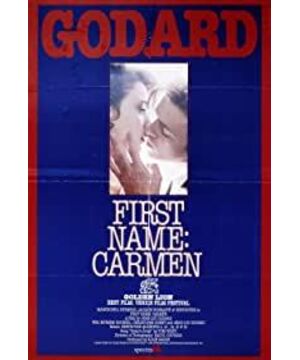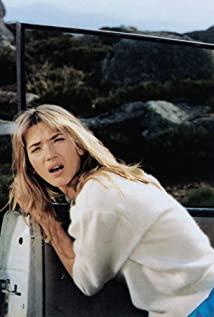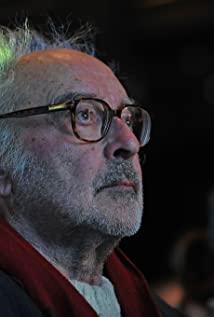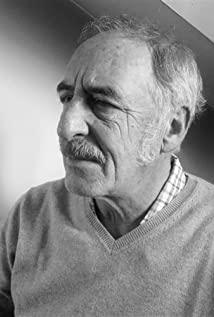Jean-Luc Godard is a god-like existence in the history of cinema, and his legend still hasn't ended. But when it comes to Godard's film work, most audiences are discouraged.
Godard was already an explorer of film language when he debuted. For more than half a century, he has never stopped innovating the language of film. He has always stood in the world film circle as a "revolutionary".
Godard's films are full of ambiguity, even, "ambiguity" is the ubiquitous existence of Godard's films. Therefore, interpreting Godard's films is often a thankless task. Because of this, Godard is a favorite in the film academia, and there are numerous treatises and papers on his films.
This article is not an academic interpretation, but only a glimpse of Godard's masterpiece "Carmen in the Name" through only a few words.
"The police belong to the society, and the dream belongs to the individual."
In a "random entry" arrest and trial scene, an order defender uttered the above epigram.
The story of "The Name of Carmen" is actually very simple. In a robbery, a young policeman falls in love with a beautiful female robber, and they flee together. In sex and love, suspicion and separation are always accompanied. Finally, in another During the robbery, the police killed Carmen.
In the body of the police, there are two attributes, social attributes and personal attributes. In the first attribute, the policeman wants to maintain order and fight crime; in the second attribute, the policeman just wants to get and hold his dream forever - Carmen.
In the scuffle of the first robbery, the policeman's social attributes gradually disappeared and quickly slipped to the "dream", so he frantically kissed Carmen.
However, Carmen is Carmen, the forever wild girl, she can't belong to anyone, love or sex can't conquer her, her tragedy is also doomed - only death can end "dream" and return to "order" .
Carmen is a man's "dream", revolution is a society's "dream", but the "dream" belongs to the individual after all. Even if she kidnaps the society for a while, she will still "give up" in the end!
"When you fall in love with me, you're finished."
In my impression, this line appeared twice, quoted from a movie and from Carmen.
Carmen is too beautiful and too tempting, but in fact she "can be seen from a distance but not to be teased", once "played", it will be a disaster.
In fact, the beauty of Carmen is not the beauty of purity, but the beauty of black holes. Once absorbed, it will be colorless and invisible, and it will be forever.
"Loneliness forced me to be my best friend."
The loneliness of the police, the loneliness of men, may be more common in our era of fat houses.
Most people can use video games and simulation dolls to relieve loneliness, but the police chose the most thrilling and exciting way, and completed the nirvana of "dream" with dedication.
"You make me sick. Why do men exist?"
When you make your lover sick, you are game over, you can choose to quit, or die.
The police chose to die, but in the end they could only die.
"Today, omnipotent machines make products we don't need, from atomic bombs to plastic cups, no one needs atomic bombs and plastic cups."
Godard plays "himself" in the film, a director who is "lost". This is one of his mottos in the film.
In fact, what he said was "what to do after the failure of the revolution (?)" The latter "the evil consequences of the consumption era".
Godard is a follower of "Maoism". In the more than ten years after the "68 Revolution", he actually mainly produced various "revolutionary images" and rarely presented his works on the big screen. "The Name of Carmen" can be said to be an important work for him to return to the big screen, and it is also a watershed for him to bid farewell to "revolutionary images".
Farewell to farewell, Godard did not forget to leave an elegy in the film. He muttered to himself in the film: "Mao said, remember the numbers. ... Mao is great, he feeds so many Chinese people."
"We should close our eyes, not open them."
Another motto of Godard in the film.
After more than ten years of indulging in "revolutionary images", Godard lived in isolation. When he returned to the real world, everything had changed.
In the film, Godard is ill, unresponsive and neurotic. But in his eyes, the world is sick, and it is terminally ill - he has "no eyesight".
"When the guilty are in one corner (one end), the innocent are in the other."
For the first time, Godard said. The second time, Carmen said. The third time, Carmen repeated it.
The world is a scale, the guilty and the innocent constitute a balance. In fact, no one is "guiltless".
"Beauty is the beginning of fear enough to bear."
Still Godard's motto in the film.
Carmen's beauty is "original sin"? The color of revolution is "fear"?
Godard is also contradictory. The "revolution" or "image" he "struggles" for is "beautiful", but it is also "aphasia" in the age of consumption - just like the inaudible dialogues in the film.
Also, the man reading the newspaper, the cleaner, the waiter, the looming "quartet",...
Are they the second dimension of the balanced universe? Are they from another peaceful world or space?
Is it a movie or reality?
Is the chaos and crime in the film a play within a play, or is it the "reality" we see?
Where is the director?
Godard may be a helpless prophet.
What the hell is Carmen about?
A farewell to the revolution? Or say goodbye?
However, dreams must be put down, or left behind a poignant elegy.
View more about First Name: Carmen reviews











